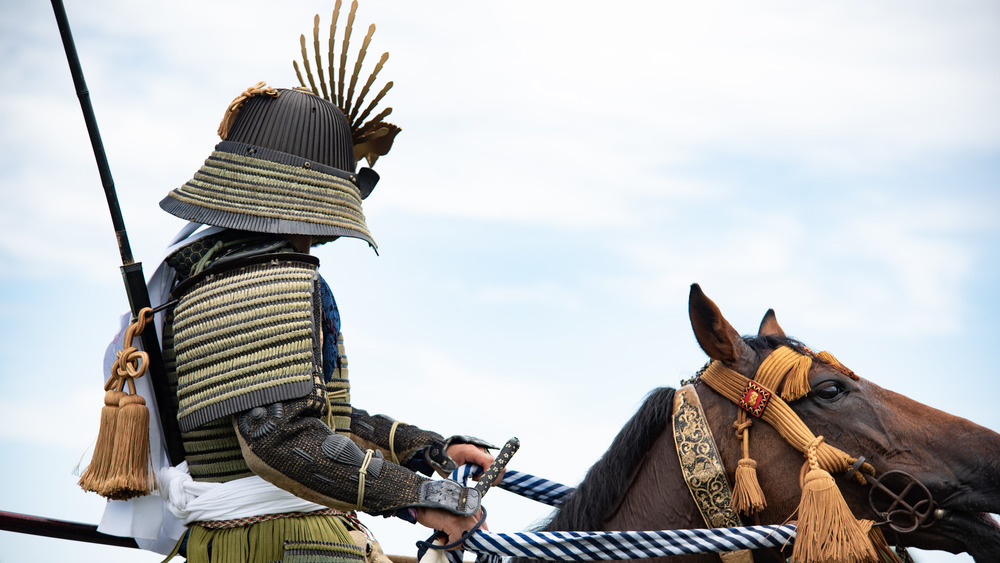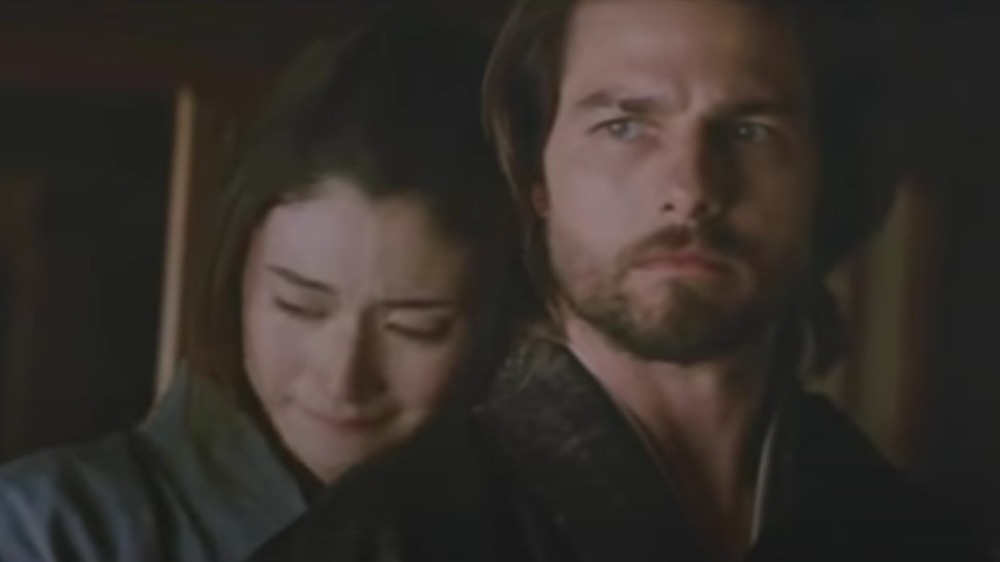Why Historians Can't Stand The Last Samurai
Here's the scene: Tom Cruise wields katana and slices and dices his way through like four Japanese dudes at the same time because he's like the sword version of Neo from The Matrix. On the way to becoming Japan's true White Savior and its final, bestest samurai ever, he gets dressed by a Japanese widow who develops feelings for him, teaches some lessons about never giving up to other Japanese people, and leads a rebellion of Japanese samurai against some other white guys with cannons in a sword-swinging horse charge at a time when samurai had been using guns for hundreds of years. Then he teaches the Japanese emperor a lesson and lives happily ever after with the widow. Also, this isn't Dances with Wolves, starring Kevin Costner. Or Avatar. Why oh why would historians ever have an issue with this movie?
Set in the 1870s during Japan's Meiji Era, when the country underwent rapid modernization, 2003's The Last Samurai gets about everything wrong when it comes to, um ... most things. Except the actual sword-fighting, that is, which is generously rated by sword-fighting master Kaito Suiji as fairly accurate (you can watch his assessment on YouTube, around the five-minute mark). As War History Online states, the costumes are all wrong, but Meiji-era downtown set design is decent. The military equipment is pretty spot on, but the overuse of English is absurd (practically no one in Japan spoke English then). And Tom Cruise's character Algren? Straight up didn't exist.
A grab-bag of Japanese history fuels a Hollywood blockbuster
To be fair, Algren was loosely based on a French military figure, Jules Brunet, sent by Napoleon to help modernize the Japanese army. Like Tom Cruise's character in Samurai, Brunet grew fond of Japan, and when the Tokugawa Shogunate (the military leadership of Japan) was overthrown in 1868, attempted to restore it. So the timeline for The Last Samurai more or less fits, including the final, intentionally suicidal charge. That charge, however, wasn't led by Brunet, nor was its antecedent uprising, the Satsuma Rebellion. As described in Emory Magazine, that was led by Saigo Takamori, an historically revered samurai born in 1827. Takamori, however, didn't try to restore the Shogunate, he worked to overthrow it and institute the Meiji government, no matter how this action ultimately led to the dissolution of the samurai class.
Basically, The Last Samurai pulled from a grab bag of historical facts and spliced them into Hollywood blockbuster fodder, complete with Tom Cruise, swords, as few subtitles as realistically possible, samurai, and ninja (yeah, they're in the movie, too, no matter that they hadn't existed for centuries). Granted, The Last Samurai might not have been trying to be historically accurate, so it gets something of a pass in that regard. But as a film set in our actual world, at a period of time that requires a bit of cultural sensitivity, it might have been a better choice to remedy some of its more glaring inaccuracies.

